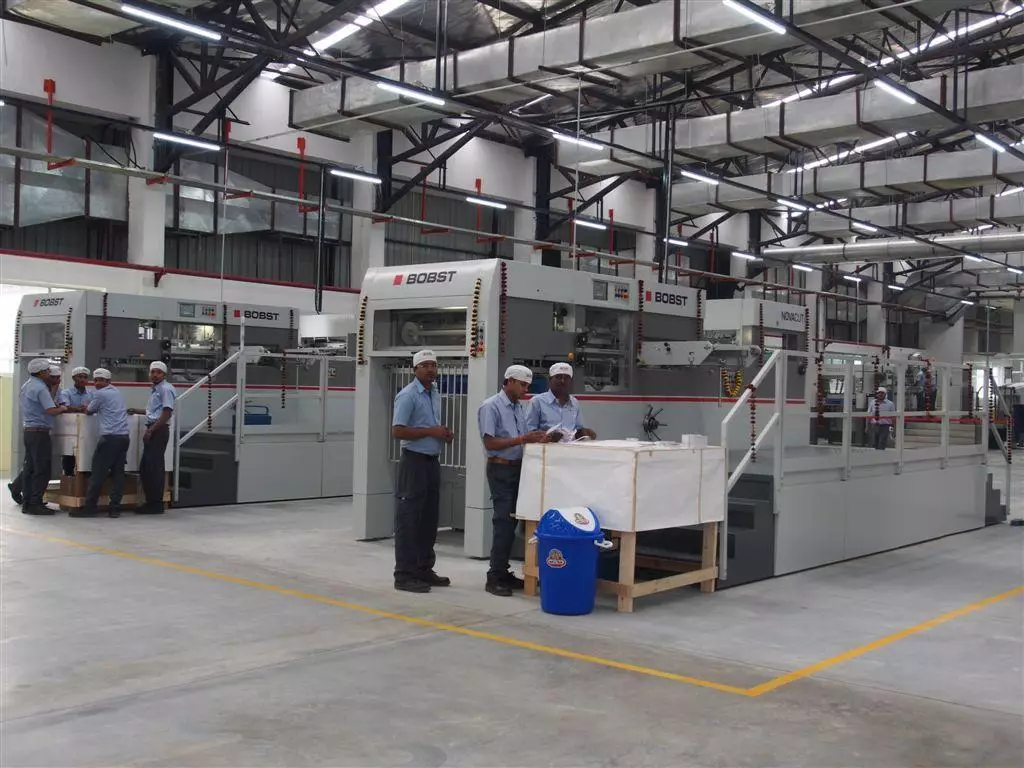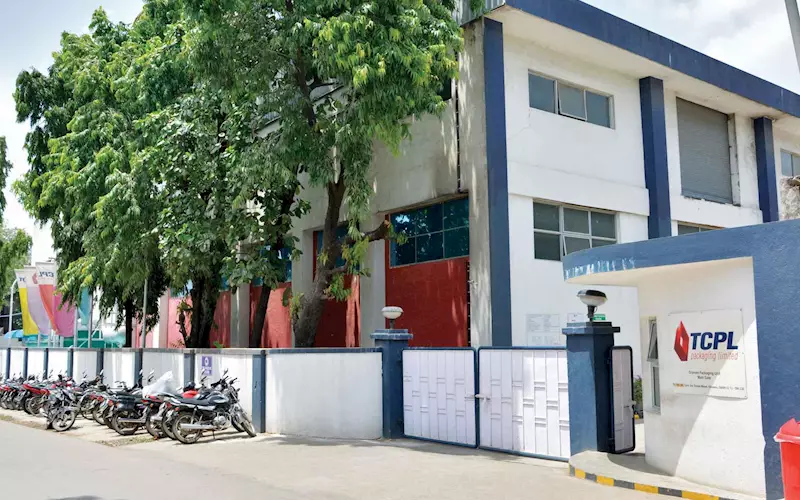The Tale of TCPL: What is it doing differently - The Noel D'cunha Sunday Column
On 29 January 2015, TCPL Packaging inaugurated its Guwahati plant. That was a year ago, now we know that one of India’s largest packaging printers, has ordered another three Rapida 106 presses from KBA plus a carton inspection system by SLKCG at Drupa. The first new Rapida will begin its journey to the TCPL plant in Silvassa in 2016. It features seven inking units and two coaters, produces conventionally as well as with UV inks/coating and will be embedded in pile logistics. A six- and se
10 Jun 2016 | By Noel D'Cunha
The company inaugurated its Guwahati plant on 29 January 2015. The company – which is celebrating its 25th year in operations - has production plants located in four locations − Haridwar, Silvassa, Goa and Guwahati. TCPL has two sections of business, namely, tobacco and non tobacco. Tobacco is based out of Silvassa which boasts of gravure equipment, sheetfed offset fleet and micro-fluting capabilities.
For non tobacco TCPL has four plants which includes the year old factory in Guwahati. The eight-acre campus in the outskirts of Guwahati with 85,000 sq/ft build-up area is located in the Industrial Growth Centre of Chaygaon. Even at that time, is spacious enough to accommodate multifold expansion and addition to the production base.

15-16% EBIDTA margin
A year ago, Saket Kanoria while speaking to PrintWeek India said, “As a company, we are operating in the 15–16% EBIDTA margin, which could be lower than a couple of our competitors but it could be higher than the general average of the industry. However, I don’t think that’s a good yardstick to measure profitability. What is a really good measure, to my mind, is the Return On Capital Employed (ROCE).”

Kanoria: "We are operating in the 15–16% EBIDTA margin"
Kanoria added, “At TCPL, we sweat our assets a lot. So the amount of tonnage that we churn per machine is highest percentile of the industry. We calculate the absolute number on that tonnage and divide that with the CAPEX invested. This number is a relevant factor."
When asked what is the thumb rule, he follows, Kanoria said, "At the end of the day, business is about how much money you put in and how much you get back. I could put Rs 100 in a business and could do a Rs 1000 turnover and make a Rs 10 profit. I can also do a Rs 150 turnover but with a Rs 15 profit. So, which one will I prefer – 1000/10 – or will I go for the 150/15 model? At the end of the day what matters is your bottomline, divided by the amount of money employed with the business. ROCE is critical and one has to be very mindful of that.”

YiiLee film laminating machine
Value addition
The mantra at TCPL is value addition. Kanoria says, “I think that the ‘sales per tonne’ is the right measurement for this. People are adding lot of value, lot of UV finishes, textured finishes, foil stamping etc. It’s a good thing for the industry. That is what is sustaining us. Otherwise the prices only kept declining, and it’s because of value- addition that we have survived.”
He adds, “Customers are looking for innovation. They do come out with a lot of promotional packs every year, or twice a year, or festive packs. They are looking for suggestions and their expectation is that we have a supplier who can deliver innovation. To this end we have set up a design centre which offers graphics design services to TCPL and its customers. It has been six months and the service has been well received. We are also setting up an innovation centre in which we can incubate the packaging development process and do prototyping and such things.”
Energy conservation
The value addition is not at the cost of energy conservation.
The roof at the Guwahati factory has an intermediate transparent plastic sheets in order to maximise the daylight utilisation. And all the lighting is powered by LED bulbs. TCPL has invested in a new humidification system and imported air conditioners to keep the power consumption at minimum levels.
According to Kanoria, the humidification system comes with completely dust controlled environment. “We are blowing in less humid air, so the air will be cool and at the same time the material will not be affected. Also, it’s low power intensive as it consumes 2.5 times lesser power than ordinary humidifiers. Also, the air conditioners are imported and equipped with screw chillers, which are very energy efficient,” he added.
Technical partnership with AB
In 2012, TCPL signed a technical collaboration agreement with the AR Packaging Group, AB, Sweden. The AR Packaging Group was formed in 2011 by Ahlstrom Capital and the Accent Equity 2008 Investment fund and has expertise in segments such as plastics, fibre, flexibles and carton. The group has 17 factories in eight European countries and employs 1,900 people.
Reviewing the collaboration, Kanoria said, “We signed a technical agreement wherein we could interchange ideas and people and visit each other’s plant and learn together. It’s more about us learning from them than them learning from us. It is under two years now and it has given us some access to technology and to bounce off ideas and know what is going on in the Western world. They had sent one of their technical experts who helped us on some cost-cutting measures. And they have expertise in tobacco printing, which has helped us in our tobacco business.”
The TCPL future
TCPL is one of the largest manufacturer of printed cartons and converters of paperboard in India with presence in the overseas markets as well which account is for 20% of annual revenues. The company is an ISO 9001:2008, ISO 22000:2005, BRC/IoP certified and SEDEX compliant packaging company.
In 2015, when asked how the future shall unfold, Kanoria said, “The big picture is that we would like to broaden the segments in which we operate. This is our 25th year of operation. So it’s a big year. We hope to hit Rs 500 crore. We would like to grow at 20% sustainably and to expand our product range. Established in 1990, TCPL crossed Rs 100 crore mark in 2007. It took 17 years to get to Rs 100 crore. Now in seven years, we hope to get to Rs 500 crore.”











 See All
See All